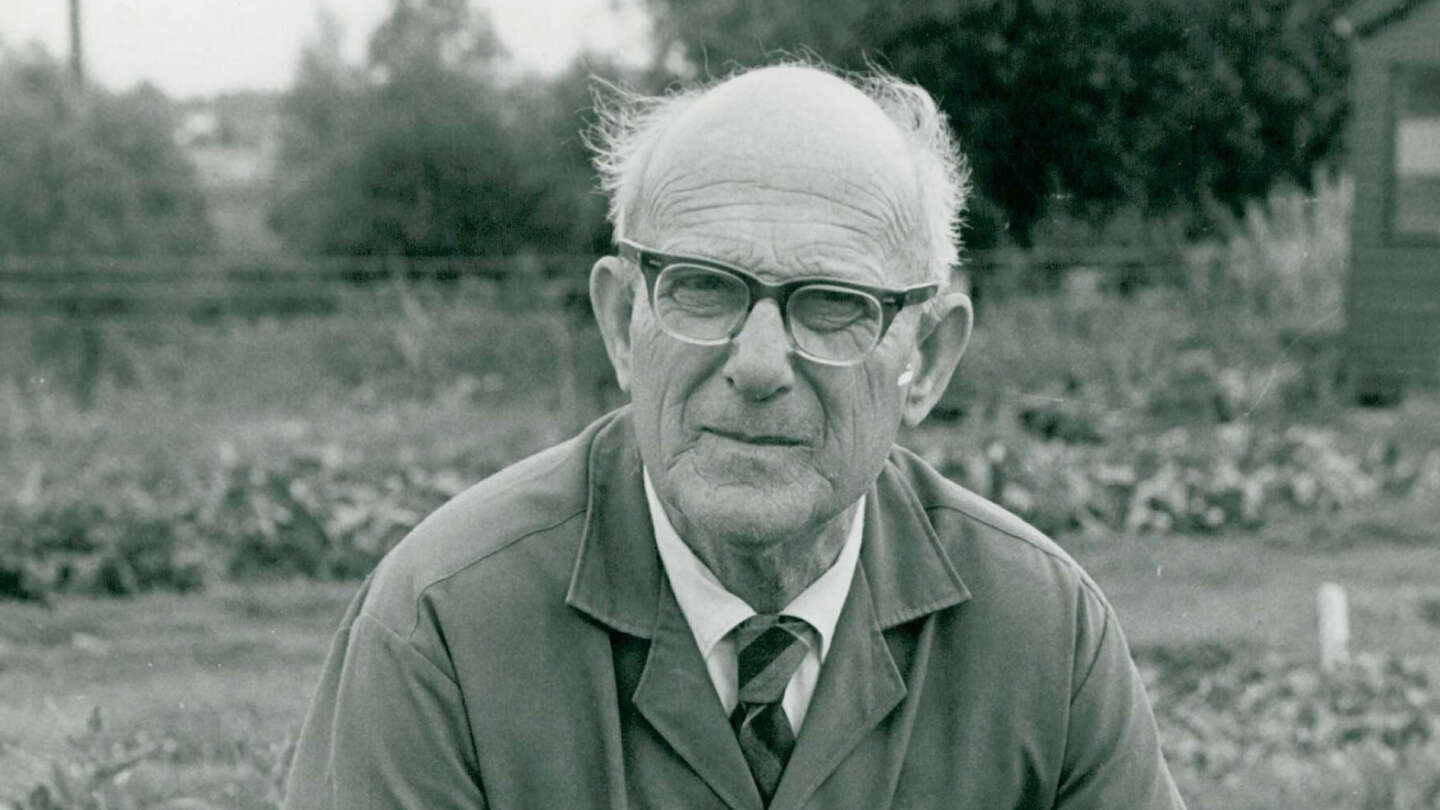Who we are
Our history

Organic gardening offers huge benefits, whether you have a windowsill, balcony, allotment or community garden.
Growing organically can boost the environment and sustainability, improve your health and wellbeing, and bolster food security. It can build stronger communities and help you reconnect with nature and what you eat.
Our mission
Through campaigning, advice, community work and research, our aim is to get everyone growing ‘the organic way’.
We want to inspire individuals, communities and the next generation to use innovative organic practices.
Underpinning this is our mission to grow a movement that takes practical action to conserve seeds, nurture soil and wildlife, and reduce waste.
Our history
It seems fitting that Garden Organic started life in a comfrey patch in Bocking, Essex. It was here that keen organic grower Lawrence Hills began experimenting with the herb as a natural fertiliser in 1954.
From his smallholding, he began to encourage other gardeners to share his research into organic growing and companion planting, and four years later, created a charitable research association to support the experiments. He named it the Henry Doubleday Research Association (HDRA) after the 19th century Quaker smallholder who brought comfrey to Britain.
Experiments in organic gardening
Between 1958 and 1963, HDRA explored, experimented, and shared knowledge about alternative organic techniques - and our Members’ Experiments were born.
The organisation took off in the 1960s with the resurgence of grow-your-own. In the early 70s, we were reporting on green manures, composting, no-dig methods and general pest control without toxic chemicals. Henry Kitchener, 3rd Earl Kitchener, was appointed the first president – a role he would remain in for 35-years until Professor Tim Lang took over in 2008.
From 1973, Alan and Jackie Gear, and Pauline Pears were recruited to focus on taking forward the scientific research, and their expertise was at the heart of the organisation for many years via the member enquiry line.
Protecting heritage vegetables
In 1975, we set up our Heritage Seed Library to protect hundreds of rare vegetable varieties. Following new laws in the 1970s, which made it illegal to commercially market seeds of varieties not included in the UK National List or European Common Catalogue, Lawrence wanted to do something to help protect the loss of heritage seed varieties. Starting as the Genetic Resources Unit, it aimed to raise public awareness and provide seed for re-sowing.
Today, up to 800 heritage varieties are grown at our current site in Ryton, where we moved in 1985. His Majesty King Charles III, then HRH Prince of Wales, became our Patron in 1989 and visited Ryton for the first time the following year.
In the late 80s, the organisation grew into the mainstream following the successful TV show All Muck and Magic, which premiered on Channel 4 in 1986. Alan Gear (former HDRA chief executive), his wife Jackie, Pauline Pears, Sue Strickland and Bob Sherman presented the show, which attracted 3.5 million viewers per week.
Our charity today
Our charity – now called Garden Organic – continues to train, educate and inspire thousands of people in organic growing principles. We run tours and workshops in our organic demonstration garden and continue outreach work through a UK network of Master Composters and Master Gardeners, as well as projects with schools and councils.
From our base at Ryton Organic Gardens, Coventry – set among our beautiful organic demonstration garden – we offer courses, webinars, talks and tours to get more people growing organically.
We also have a growing network of dedicated volunteers including seed guardians, gardeners and researchers. Our community volunteers offer training and education about organic methods such as composting and seed collection. And our wonderful active members help support and share our organic principles and take part in research experiments.
Thanks to our 20,000 members and thousands more supporters and followers, we’ve been able to share the benefits of organic growing with more than three million people around the world.
Our charity remains committed to supporting people to follow organic and sustainable practices in their garden, and we echo this within our operations. The charity has an environmental and sustainability working group which implements Garden Organic’s Environmental Sustainability Policy and Procedure, and the charity’s commitment to become Net Zero by 2050, if not before.